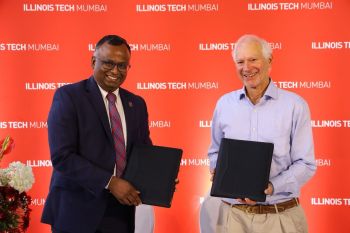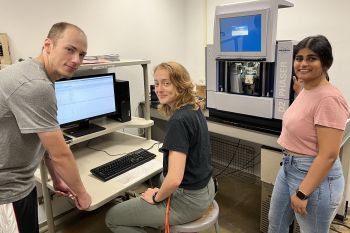New Sexual-Orientation Group, Heteroflexibles, Identified in First-of-Its-Kind Study
CHICAGO, January 9, 2020— An Illinois Tech researcher has published a study that formally identifies a new sexual orientation category, determining that heteroflexibles should be considered a fourth fundamental class of sexual orientation.
Heteroflexibles could represent more than the number of gay, lesbian, and bisexual people combined according to a recent study by Nicole Legate, an assistant professor of psychology at Illinois Institute of Technology. The study utilized a new algorithm to identify meaningful and distinct classes of sexual orientation through a data-driven, evidence-based approach, determining that heteroflexibles should be considered a major category of sexual orientation.
According to Legate’s definition, heteroflexibles are men and women who identify as heterosexuals but are strongly attracted to or engage in sex with people of the same sex. This group does not identify as bisexual, which is why these individuals are in their own unique category. Very few studies have included men and women who identify in this way, and there is no common way of classifying heteroflexibles into their own distinct group. This means that health risks and disparities, discrimination, and other issues for heteroflexibles are not being fully addressed in health care or policy discussions.
“When you go to the doctor’s office they don’t ask you for your sexual orientation,” Legate said. “We need to be able to understand the needs of these different communities to fully understand the health disparities they face. We need to facilitate science to find out what’s going on and how to improve their lives, including for heteroflexible individuals who face a lot of health disparities.”
Legate’s work established the Multidimensional Sexual Orientation Classification System (M-SOCS), a scoring algorithm that combines sexual orientation on the Kinsey scale with an assessment of attraction to same-sex individuals as a way to categorize sexual orientation. The M-SOCS scale identifies four fundamental classes of sexual orientation: heterosexuals, bisexuals, homosexuals, and heteroflexibles. By applying the M-SOCS algorithm in this study, Legate estimates that up to 15 percent of the population may identify as heteroflexible but that a larger representative sample is needed for more research. Legate said M-SOCS creates a more common language and unified classification system for all researchers and health care providers interested in studying health, epidemiological, and psychology issues related to sexual orientation.
“The more recognition of all sexual diversity in all of the different contexts, the more acceptance and less stigmatization there will be,” Legate said. “This will hopefully lead to better health outcomes for sexual minorities.”
Legate’s research paper outlining the findings of her study, “Identifying Basic Classes of Sexual Orientation with Latent Profile Analysis: Developing the Multivariate Sexual Orientation Classification System,” was published in the Archives of Sexual Behavior.
About Illinois Institute of Technology
Illinois Institute of Technology, also known as Illinois Tech, is a private, technology-focused, research university, located in Chicago, offering undergraduate and graduate degrees in engineering, science, architecture, business, design, human sciences, applied technology, and law. One of 21 institutions that comprise the Association of Independent Technological Universities (AITU), Illinois Tech offers exceptional preparation for professions that require technological sophistication, an innovative mindset, and an entrepreneurial spirit.




